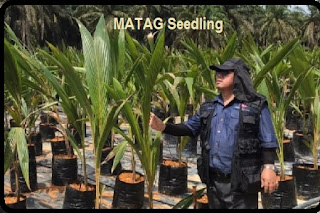Reported that the high price of local coconuts has deterred local coconut manufacturers from relying solely on domestic supply. Manufacturers that want to ensure customers can purchase their goods at affordable prices are caught in a bind as they also have to control their raw material costs. The price of local coconuts is too high in which reported it can be as much as 2½ to 3 times the price of coconuts produced and imported from neighbouring countries such as Indonesia. Malaysia import coconut fruit from Indonesia since many years ago with Approval Permit are given to local importers by the Ministry Of Agriculture and Food Industry (MAFI). Therefore to increase the attractiveness of local suppliers reported that the government ready to set up a new board to regulate the coconut industry and manage prices. The proposal is to ensure that the difference between local and foreign coconuts is not too wide but until this article written there are no new board appeared. The new board expected to help to regulate the transactions of coconuts and prices of imports. In addition the possibilities of subsidies have to come in for the industry. When the government taxes the industry then the money must always come back in a cycle to assist the upstream industry. There are possibilities the government agencies such as the MATRADE as well as the MITI and MAFI have supported the coconut industry through various initiatives. The industry cannot grow only through contributions from the private sector.
For the past 20 years from my observation, coconut trees have been felled and replaced with oil palm and rubber. The farmers and government’s planning revolved around for the planting whichever crop was better. But actually the sustainability of the business is not there. If local coconuts are competitive, many manufacturers can lower their costs by buying them to help support the local industry. This is not an initiative the private sector can undertake by itself. Acquiring new land to plant coconuts is expensive and providing farmers with new and good varieties of seedlings requires a substantial amount of capital. It will be too costly and labour intensive for the private sector to take this on by themselves. If Malaysia have a board later the body able to regulate the standard of seedlings and bring in seedlings from other countries. Farmers able to select members of the board and have a fund to manage it and also do R&D and set up a lab to create those seedlings. This would be like the palm oil board in which is very strong and able to support its farmers in Malaysia for decade. The coconuts in Malaysia are reflected by the competitive price and volume in which the sector would take them. The industry need for a consistency of volume and prices so that the coconut base product and downstream activities are secured. Thanks...
For the past 20 years from my observation, coconut trees have been felled and replaced with oil palm and rubber. The farmers and government’s planning revolved around for the planting whichever crop was better. But actually the sustainability of the business is not there. If local coconuts are competitive, many manufacturers can lower their costs by buying them to help support the local industry. This is not an initiative the private sector can undertake by itself. Acquiring new land to plant coconuts is expensive and providing farmers with new and good varieties of seedlings requires a substantial amount of capital. It will be too costly and labour intensive for the private sector to take this on by themselves. If Malaysia have a board later the body able to regulate the standard of seedlings and bring in seedlings from other countries. Farmers able to select members of the board and have a fund to manage it and also do R&D and set up a lab to create those seedlings. This would be like the palm oil board in which is very strong and able to support its farmers in Malaysia for decade. The coconuts in Malaysia are reflected by the competitive price and volume in which the sector would take them. The industry need for a consistency of volume and prices so that the coconut base product and downstream activities are secured. Thanks...
M Anim,
Putrajaya,
Malaysia.
(July 2022).




No comments:
Post a Comment